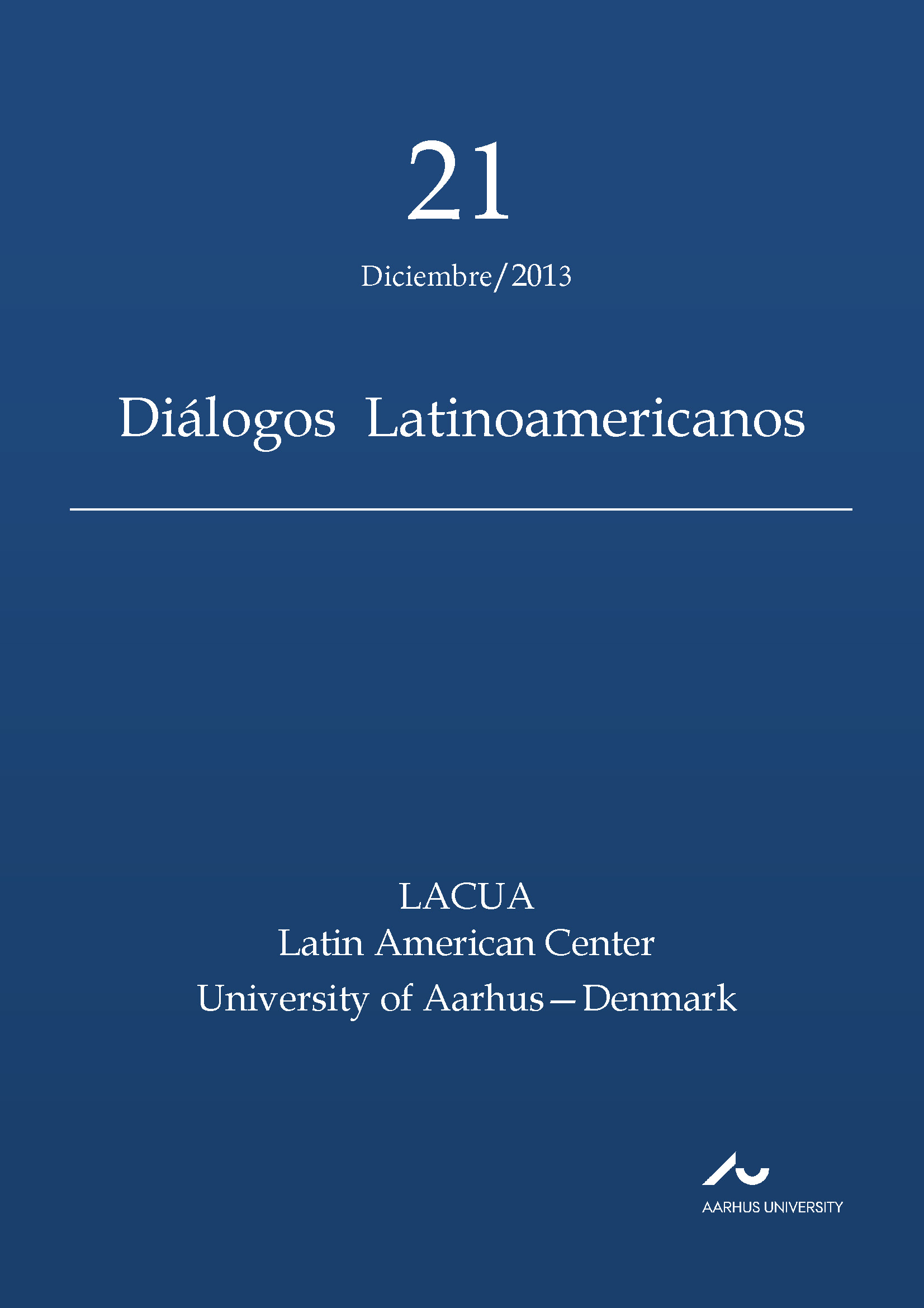Una aproximación a la evaluación del imaginario del turismo en las ciudades del conocimiento
DOI:
https://doi.org/10.7146/dl.v14i21.113254Keywords:
urban imaginary, tourism cities, knowledge cities, contingent valuationAbstract
The study asserts the image of urban tourism that develops in the cities where the main
economic activity tends to be generating and applicating knowledge.The article
describes the type of knowledge encountered in the city, identifying the relevant
elements of the urban dynamics. The case study is Monterrey in Mexico where the
focus is specifically on the urban and pop performances and strategies for developing
tourism activities, the "Project of Saint Lucia - Urban Integration". The article focuses
on two methods. First contemplative observation about the site and its urban
environment, then structured interviews with the users of this public space. The article
identifies morphological elements that make up the image of Monterrey, which
contrast the basic idea of Monterrey.
References
ecológica. Ed. Icaria; FUEM: España
Alonso, W. (1964) Location and land use: Toward a General Theory of Land
Rent, Harvard University Press Cambridge, MA.
Azqueta, D. (1994) Valoración económica de la calidad ambiental. McGraw-
Hill: Madrid
Azqueta, D. y Pérez y Pérez, L. (1996) El valor económico de los servicios
recreativos en los espacios naturales. Mc Graw Hill: Madrid.
Campos, P.; Riera, P. (1996) “Rentabilidad social de los bosques: Análisis
aplicado a las dehesas y los montados ibéricos”. Información Comercial
Española, 751: 47-62
Coase, R. (1960) “The Problem of Social Cost”. Journal of Law and
Economics: 3:1-44.
Constanza, R. (ed.) (1991) Ecological Economics. The Science and
Management of Sustainability, Columbia University Press, New York, USA.
Cummings, R.; Harrison, G.W. (1995) “The Measure and Decomposition of
Nonuse Vlaues: A critical Review”. Environmental and Resource
Economics, 5: 225-247
Daly, H. (compilador) (1989) Economía, ecología, ética. Ensayos hacia una
economía de estado estacionario. Fondo de Cultura Económica/ Economía
Contemporánea: México
Edvinsson, L. (2006) “Aspects on the City as a Knowledge Tool”. Journal of
Knowledge Management|Journal of Knowledge Management, 10(5): 6-13.
Ergazakis, K.; Metaxiotis, K.; Psarras, J. (2004) “Knowledge Cities:
Conceptual Analysis and Success Stories” Journal of Knowledge
Management, 8(5): 5-15.
Ergazakis, K.; Metaxiotis, K.; Psarras, J., Askounis D. A. (2006) “Unified
Methodological Approach for the Development of Knowledge Cities”.
Journal of Knowledge Management, 10(5): 65-78.
Fitch Osuna, J. M. (2006) La incidencia de externalidades ambientales en la
formación espacial de valor inmobiliario: El caso de la Región
Metropolitana de Barcelona. Tesis doctoral, Universidad Politécnica de
Cataluña.
Hartwick, J.M. (1977) “Intergenerational Equity and the Investing of Rents
from Exhaustible resources”. American Economic Review, 67: 972-974.
Hausman, J.A. (1993) Contingent Valuation: A critical Assesment, North
Holland: Holland.
Johansson, P.O. (1990) “Valuing Environmental Damage”. Oxford Review of
Economics Policy 6: 34-50.
Knight, R. (1995) “Knowledge-Based Development: Policy and Planning
Implications for Cities Urban Studies”, 32(2): 225-260.
Lynch, K. (1960) The Image of the City. The Massachusetts Institute of
Technology Press: Cambridge.
Naredo, J.M.; Parra, F. (compiladores) (1993) Hacia una ciencia de los
recursos naturales. Siglo Veintiuno de España Editores, Madrid, España.
Narvaez Tijerina, A.; Fitch Osuna, J. (2007). La ciudad y el conocimiento. Ed.
UANL: Monterrey.
O’sullivan, A. (2000) Urban Economics, edición, McGraw-Hill.
Pearce, D. (1993) Economics Values and the Natural World. Earthscan: London
Pearce, D.W.;Turner, R.K. (1990) Economics of the Natural Resources and the
Environment. Harvester Wheatsheaf: London.
Riera, P. (1994) Manual de valoración contingente. Instituto de Estudios
Fiscales: Madrid.
Riera, P. (1991) La metodología Cost-Benefici. Una aplicació als Cinturons de
Ronda de Barcelona, Bellaterra, Universitat Autónoma de Barcelona.
Riera, P.; Descalzi, C.; Ruiz, A. (1994) “El valor de los espacios de interés
natural en España. Aplicación de los métodos de valoración contingente y
coste de desplazamiento”. Revista Española de Economía, número
monográfico "Recursos Naturales y Medio Ambiente": 207-229
Romeiro, P.; Méndez Gutiérrez Del Valle, R. (2008) Las ciudades del
conocimiento: revisión crítica y posibilidades de aplicación a las ciudades
intermedias. Diez años de cambios en el Mundo, en la Geografía y en las
Ciencias Sociales, 1999-2008. Actas del X Coloquio Internacional de
Geocrítica, Universidad de Barcelona, 26-30 de mayo de 2008. [Documento
WWW] URL http://www.ub.es/geocrit/-xcol/407.htm
Saz, S. Del; García, L.; Palau, J.M. (1999b) “Los beneficios sociales de la
remodelación urbanística de la fachada litoral de Valencia”: Un ejercicio
de Valoración Contingente. Edit. CIVITAS: Madrid.
Saz, S. Del; Fuertes, A.; García, A.; Bengochea, A. (1999) Valoración social de
la zona de ocio del Moll de Costa (Puerto de Castellón). Editado por
CIVITAS; Universitat Jaume I y El Instituto Portuario de Estudios y
Cooperación de la Comunidad Valenciana.
Tietenberg, T. (1988) Environmental and Natural Resource Economics. Harper
Collins Publishers: New York.
Downloads
Published
How to Cite
Issue
Section
License
Counting from volume 31 (2022), articles published in Diálogos Latinoamericanos are licensed under CC-BY 4.0. Read more about the license terms here https://creativecommons.org/licenses/by/4.0/.
No Creative Commons license applied on volumes 1-30. All rights reserved by the authors. Readers may download, read, and link to the articles, but they cannot republish the articles.
With the publication of volume 31 (2022), authors retain the full copyright to their articles and give Diálogos Latinoamericanos the right to the first publication. Authors also retain copyright to earlier versions of manuscripts, such as the submitted (pre-print) and the accepted manuscript (post-print).
Copyright to articles published in volumes 1-30 is held by the authors.





